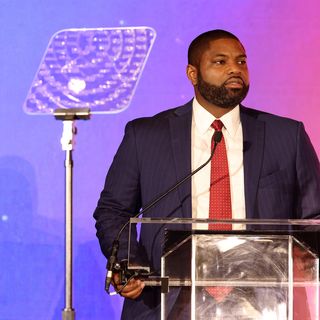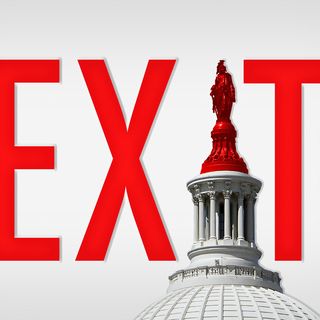I'm 80 and still working. I've filed for bankruptcy twice and only have $37 in my savings account, but I feel blessed.

Bridget Bennett for BI
This as-told-to essay is based on a conversation with Sandy McConnell, 80, who lives in Nevada. McConnell works as a full-time accounts receivable specialist, earning about $50,000 annually. She has $37 in savings and over $70,000 in debt, not including her house. Business Insider has verified McConnell's current income and financial situation with documentation. This interview has been edited for length and clarity.
Sometimes, I feel it's sad that people like me are still working so late in life, whether it be because we didn't manage money better, were never taught how to do so, or had circumstances that hindered our financial goals.
I have to work because I've been single since 1997 and have a house payment, a car payment, and high credit card debt. I didn't take a 401(k) with my current company because I thought it was stupid to; I need the money now, not 10 years from now.
On the other hand, if I didn't work, what would I do? I can't sit home all day — I would go nuts. Sure, I don't have the freedom to travel, but there are pros like keeping my brain active.
I started working as a teenager

Bridget Bennett for BI
When I was 16, I got my first part-time job as a cashier. I got married in 1962 and had a baby the following year. I tried going back to school, but I went to a Catholic school, and the nuns weren't having any of that. My husband was in the Navy, and I worked as a full-time checker while he was deployed.
When he came back, I became pregnant again. After having that child, I worked in another grocery store as the head cashier and at the customer service desk. Through the 1960s, I held a few other grocery jobs, doing accounts receivable for one and doing collections work for Sears Roebuck.
My last child was born in 1971. My husband left when my kids were little, and he wouldn't pay child support. Financially, I was always strapped, raising five children.
I went through the training to be a nurse's aide, but realized quickly it wasn't for me. With my experience in consumer collections, I got a job a few years later at a jewelry store as a credit manager. Then I became a credit manager at a construction company, a role I held for many years. I held various credit management jobs while in Las Vegas, such as for automobile, roofing, and lighting companies. I lost my job at a building supply company right before COVID hit.
I had to file for bankruptcy

Bridget Bennett for BI
I've always been living paycheck to paycheck and never had a lot in savings.
In 2001, I had 13 family members living with me due to unfortunate circumstances. They finally found work and got their own places, but that hurt me financially to the point where I've had to file for bankruptcy once in 2004 and most recently in October 2021.
In 2022, my youngest son was living with me. We had previously had a falling out, but when he said things weren't going well, I told him he always had a place to stay. After being out of work, he got a really good job as a city bus driver and was helping me financially.
One day, he never came home from work. He had collapsed from a massive heart attack.
My oldest son and my grandson came to live with me after that. My oldest son was constantly changing jobs. In December 2023, he had a major stroke and couldn't work, and I had to take out credit cards to support my grandson. That really set me back financially. My son didn't have insurance at the time, and I also had to make sure he had his medications and got to therapy.
He and his son moved back to Oklahoma to be with his dad in June 2024. My daughter moved in with me the following month due to a nasty divorce. She's doing great and has a good job. She helps me financially. I don't have anybody right now to have to take care of, except for myself and my dogs.
I've never thought I could retire

Bridget Bennett for BI
Now I find myself at 80 still needing to work. Part of that is financial, and part of it is because I would be bored; if you don't have any money to do anything with, what are you going to do? Your house can only get so clean.
I work as a full-time accounts receivable specialist. It's a very busy position, and I earn around $50,000 a year. I work from home, which I love. My company appreciates work-life balance, so if I need time off, they give it to me. I also get $1,784 in monthly Social Security.
I had 401(k)s from previous jobs, but I never had enough in them to be able to say, "I can retire." That's not going to happen.
I own my home, and I've been in it for 10 years. It's valued at around $400,000. If I sold it, I could retire, but if I do that, where am I going to go?
Debt, including everything except my house, is probably around $70,000. I'm trying to pay it down each month, but something always happens and I have to end up spending my money on something else. I put money in my bank account every month, but right now I have $37 in my savings account.
My credit is fairly good, and I'm satisfied with what I have. I'm more blessed than a lot of other people I know.
I make do with what I have

Bridget Bennett for BI
I have great-grandkids in town, so I like to visit and spend some time with them. Anything family-oriented is always great, whether it's going to somebody else's house, a dinner, or a barbecue. I like to take my dogs to the dog park when I can. Until last September, I walked a lot until I developed a couple of health problems that have prevented me from doing so.
Once a month, I go to lunch with my former coworkers at a company where I worked for 13 years. We go to an affordable restaurant and talk, cry, laugh, and remember the good times at our job.
Every night, I get online and play in my poker league. I don't play for money; I used to gamble, but I can't really do that anymore. I play for points, but I do pay for a $40 monthly membership. You earn tokens, which you can use to play in cash tournaments. I play in many charity tournaments, especially for autism.
I don't spend a lot. I like to shop at bargain stores, and I only buy reasonably priced things. I don't eat a lot, and I can get by with peanut butter sandwiches. I spend $150 to $200 at the grocery store monthly, and I do a lot of food prep. I spend about $100 on essentials like toilet paper, paper towels, and other items.
I can put $5 in my wallet, and it lasts me forever.



